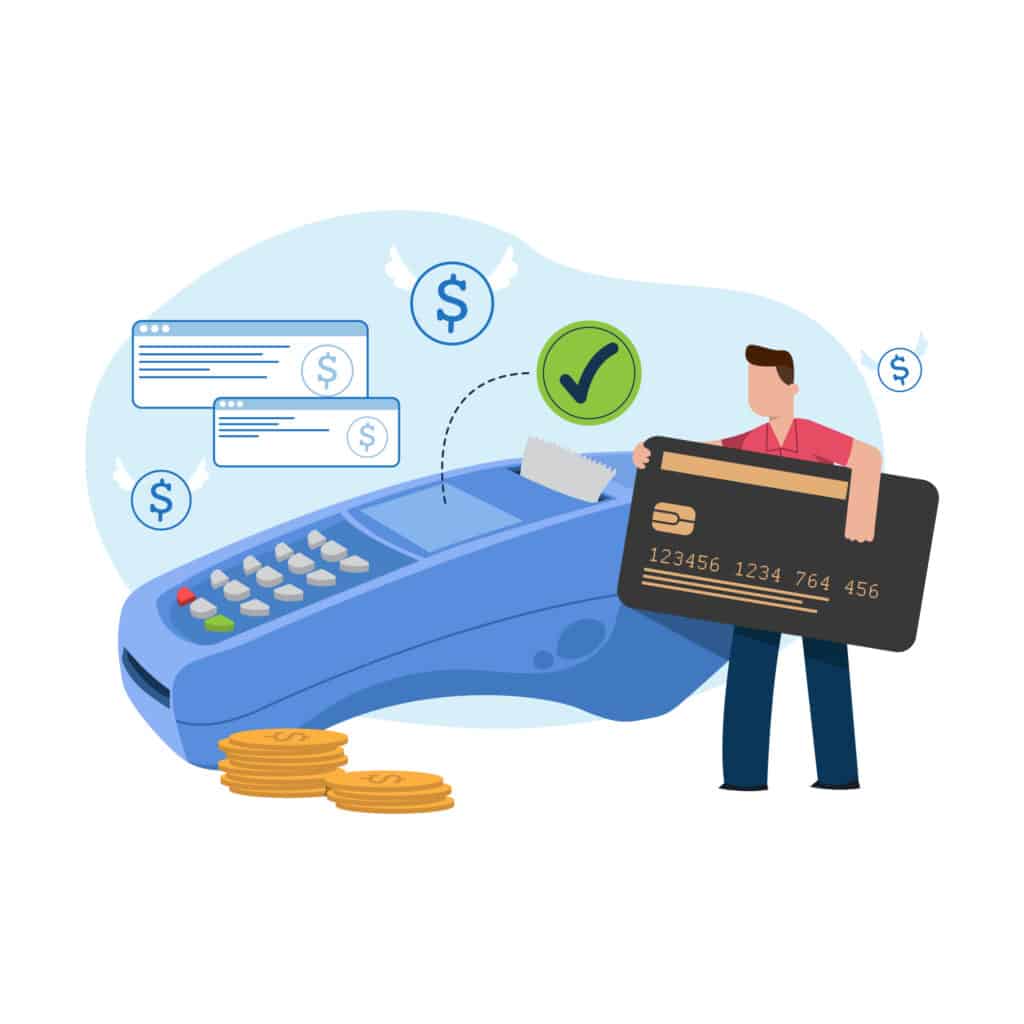In today's digital age, e-commerce has drastically changed the way we shop and do business. Whether you run a small online store or a large-scale business, an essential element that keeps the e-commerce machine running smoothly are Payment Service Providers, or PSPs. But what exactly are PSPs and why are they crucial for your online business? Let's dive into this world of digital payments and explore the role of PSPs in the e-commerce ecosystem.
What are Payment Service Providers (PSPs)?

Payment Service Providers are financial institutions or third parties that facilitate online transactions by connecting merchants (merchants) with various payment methods, allowing them to accept payments from customers. PSPs act as intermediaries and simplify the complex process of secure payment transactions over the Internet. They provide the necessary technology, infrastructure and expertise to make online transactions seamless and secure.
The Key Functions of PSPs
PSPs offer a range of services that are vital in the world of e-commerce. Here are some of their core features:
1. Payment Processing
Payment service providers allow merchants to accept payments through a variety of channels, including credit cards, debit cards, digital wallets and even alternative payment methods like PayPal, Apple Pay and more. They ensure that transactions are processed, verified and settled securely.
2. Fraud prevention
Online fraud is an ongoing threat in e-commerce. PSPs use advanced fraud detection and prevention tools to protect both merchants and customers from fraudulent activity. They analyze transaction data to identify suspicious behavior and take measures to prevent unauthorized transactions.
3. Support for Multiple Currencies
For companies targeting global markets, PSPs offer multi-currency support. This allows customers to make payments in their preferred currency, which is the
So, that was the Dutch version of the blog post about Payment Service Providers (PSPs). If you need any more specific information about PSPs or related topics, don't hesitate to ask!
Benefits of Using PSPs
1. Security and Fraud Prevention: PSPs invest in advanced security measures and fraud prevention systems. They monitor transactions in real time and detect suspicious activity, strengthening online security and protecting both merchants and customers from fraudulent actions.
2. Payment diversification: PSPs offer access to different payment methods. This allows customers to pay using their preferred method, leading to a larger customer base and higher conversion rates.
3. International Expansion: If you plan to sell internationally, PSPs offer support for multiple currencies and local payment methods. This allows you to do business worldwide without worrying about complex currency exchanges.
4. Scalability: PSPs are flexible and scalable, making them suitable for both small start-ups and large enterprises. As your business grows, they can grow and adapt to your needs.
5. Reporting and Analytics: PSPs provide extensive reporting and analytics tools. This allows you to gain insight into your transaction data, identify trends and improve your business strategy.
In the world of e-commerce, Payment Service Providers (PSPs) have become an indispensable link between merchants and their customers. They play a crucial role in facilitating online transactions and contributing to the smooth running of digital trade. In this comprehensive guide, we take a deep dive into the world of PSPs, their features, benefits and some of the leading PSPs in the industry.
The Core Functions of Payment Service Providers
PSPs act as intermediaries in the payment process between buyers and sellers. They offer several features that are vital for a smooth and secure payment experience:
PSPs in the E-commerce Revolution
The rise of e-commerce has drastically changed the way consumers shop. With the ability to order and pay for products and services online, shopping is now accessible from the comfort of our homes and on the go. This has led to an explosion of online stores and marketplaces.
PSPs have become a crucial link in this e-commerce ecosystem. They have transformed the payments landscape by providing merchants with the tools and technologies needed to process payments securely and seamlessly. Let's take a closer look at some of the most important aspects of PSPs.
Payment Processing and Security
One of the most critical functions of PSPs is payment processing. This includes facilitating transactions across channels such as credit cards, debit cards, digital wallets and mobile payments. The goal is to ensure that payments are processed quickly and efficiently.
Safety is central to the activities of PSPs. They invest significantly in security measures to protect sensitive financial information. This includes the use of encryption to scramble data in transit, which prevents malicious third parties from accessing sensitive information.
Another important aspect of security is fraud prevention. PSPs use advanced tools and algorithms to identify and prevent suspicious activity. This looks at various factors, such as transaction behavior, location data and historical data, to detect fraudulent transactions before they happen.
Payment diversification
One of the benefits of working with PSPs is access to a wide range of payment methods. This is crucial because consumers have different preferences when it comes to payment. While one person may prefer credit cards, another may prefer digital wallets like PayPal or mobile payments like Apple Pay.
By offering multiple payment methods, merchants increase their chances of conversion. If a customer can use their preferred payment method, they are more likely to actually make a purchase. This is especially important for international trade, where different regions have their own popular payment methods.
International Expansion
E-commerce knows no borders, and with the help of PSPs, companies can easily expand internationally. PSPs support multiple currencies and local payment methods. This means that a store in the United States can effortlessly accept payments in euros for European customers or in yen for Japanese customers.
This international expansion would otherwise be complex and costly due to currency conversion costs and the need to comply with local payment regulations. PSPs greatly simplify this process and enable companies to operate globally.
Scalability and Flexibility

Another important feature of PSPs is their scalability. They are suitable for both small start-ups and large enterprises. This means that a start-up online store can use the same PSP as an established e-commerce giant.
PSPs also offer flexible integration options. This includes APIs (Application Programming Interfaces) and plugins compatible with popular e-commerce platforms. This allows merchants to quickly and efficiently integrate payment processing into their websites or apps.
Convenience and User-friendliness
Finally, PSPs have significantly improved the payment experience for both merchants and customers. For merchants, this means easy access to tools for managing payments, generating reports and tracking transactions.
For customers, this means a seamless and intuitive payment experience. PSPs strive to make the checkout process quick and effortless. This results in satisfied customers who are more likely to return for repeat purchases.
Mobile payment:
With the growth of mobile shopping, PSPs are offering support for mobile payments. This includes accepting payments through mobile apps and optimizing the payment experience for mobile users.
Benefits of Using PSPs
Using a PSP offers numerous benefits for both merchants and customers:
1. Safety and Trust:
Payment service providers invest significantly in security and data protection. They use encryption and other security measures to secure transactions. This strengthens customer confidence in online shopping.
2. Payment Diversification:
PSPs offer access to different payment methods, allowing customers to pay with their preferred method. This results in higher conversion rates and a broader customer base.
3. International Expansion:
For businesses looking to sell globally, PSPs offer support for multiple currencies and local payment methods. This facilitates international expansion without the complexity of currency exchanges.
4. Scalability:
Payment service providers are flexible and scalable. They can meet the needs of both small start-ups and large enterprises. As your business grows, they can grow and adapt to your needs.
5. Convenience and User-friendliness:
PSPs offer easy integration with e-commerce platforms and websites. They simplify the payment process for customers, resulting in a positive shopping experience.
Some Leading Payment Service Providers
There are numerous PSPs active in the market, each with its own unique features and focus areas. Here are some of the leading PSPs in the industry:
1. Adyen:
• Global Presence: Adyen is one of the few PSPs with global coverage. They support more than 250 payment methods and 150 currencies, allowing businesses to expand internationally.
• Advanced Fraud Prevention: Adyen has powerful fraud prevention and risk management tools, including machine learning and artificial intelligence to identify suspicious activity.
• Customer portfolio: Adyen serves some of the world's largest brands, including Uber, Spotify, eBay and Airbnb.
2. buckaroo:
• Local Expertise: Buckaroo focuses mainly on the Dutch market and has in-depth knowledge of local payment methods and regulations.
• Broad Support: In addition to iDEAL and credit cards, Buckaroo supports a range of Dutch payment methods such as AfterPay, Bancontact and SOFORT.
• Subscription management: Buckaroo offers subscription management and billing solutions, which can be useful for businesses with recurring payments.
3. Mollie:
• User-friendliness: Mollie is known for its easy integration. It offers plugins and SDKs for popular e-commerce platforms.
• Transparent Pricing: Mollie uses a transparent pricing structure with low entry costs and no monthly subscription fees.
• European Focus: Although Mollie offers global payment options, the focus is mainly on European markets.
4. Pay.nl:
• Various Payment Methods: Pay.nl supports a wide range of payment methods, from iDEAL and credit cards to Bitcoin and post-payment.
• Flexible Integration: Pay.nl offers various integration options, including APIs and ready-made plug-ins for e-commerce platforms.
• Reporting and Analysis: They offer extensive reporting and analysis options to gain insight into your transaction data.

5. Worldpay:
• International Presence: Worldpay is one of the world's largest PSPs and has a strong international presence with support for over 120 currencies.
• Advanced Security: They offer powerful data security and fraud prevention tools to protect both merchants and customers.
• Customizable Payment Solutions: Worldpay offers customizable payment solutions for various industries including e-commerce, travel and retail.
Conclusion
Payment Service Providers play a crucial role in the modern e-commerce world. They not only provide secure and convenient payment solutions, but also enable businesses to expand and grow globally. Choosing the right PSP is a strategic decision for any business that sells online. It is essential to research the different options and understand which one best suits the needs of your business and your customers. With the right PSP by your side, you can provide a seamless and reliable payment experience and take your business to new heights in the world of e-commerce.




